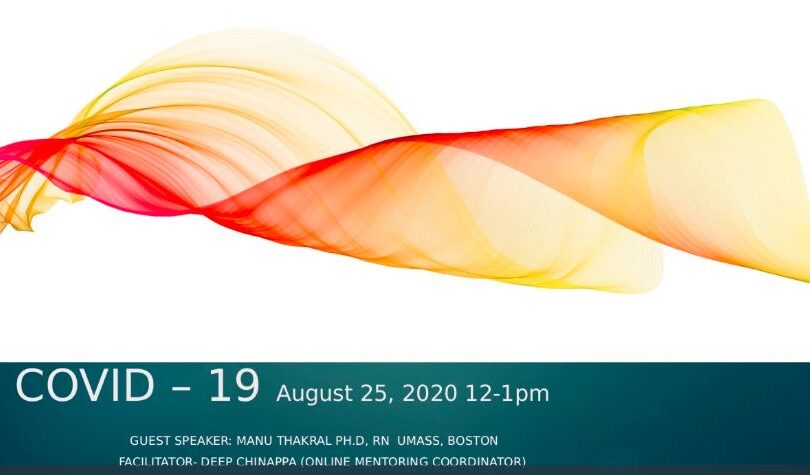As the US continues to grapple with COVID-19, PYD’s Online Mentoring Coordinator Deep Chinappa hosted a webinar for PYD’s online mentoring community with Manu Thakral, PhD, RN from the University of Massachusetts Boston in August to better understand the virus and what it means specifically for people with disabilities and returning to school or work.
During the webinar, Deep and Manu addressed: what is COVID-19, how does it spread, who is most at risk, how to protect ourselves as we head back to campus or work, and precautions people with disabilities should be taking at this time.
Manu addressed how to protect yourself if those around you are not practicing social distancing, such as at a store or workplace. She suggested confirming that the area is well ventilated and limiting close contact with others as much as possible. While we are still learning more about the disease, evidence shows it is contracted from both droplets and airborne pathogens. Manu recommended protecting yourself as best you can by wearing a mask that covers the mouth and nose and fits snugly to your face.
Scientists suggest that a vaccine is the best way to manage the virus. Currently, researchers around the world are developing more than 165 vaccines against COVID-19 and 32 vaccines are in human trials. Long term vaccines (that are taken only once) usually take a year or years to develop. Temporary vaccines can be developed in a shorter amount of time but will need to be administered again (for example, the flu vaccine which is needed annually). Manu emphasized that developing a vaccine is only part of the solution. Delivery of the vaccine may be a larger challenge as producing and administering large quantities will be necessary. She also discussed the original source of virus, testing methods, and strains of the virus.
Most people with disabilities are not inherently at higher risk for becoming infected with or having severe illness from COVID-19; however, some people with disabilities may be at a higher risk because of underlying medical conditions. All people are at higher risk of infection and severe illness if they have chronic medical conditions such as cardiovascular problems or compromised immune or respiratory system. While disability alone does not relate to higher risk, adults with disabilities are three times more likely than adults without disabilities to have heart disease, stroke, diabetes, or cancer than adults without disabilities.
Our understanding of COVID-19 has deepened in the last several months and researchers continue to learn about the transmission of the virus and best practices to slow the spread. We can stay informed with the latest news from trusted resources such as the Centers for Disease Control (CDC) and Massachusetts Department of Health, which were provided during the webinar.

